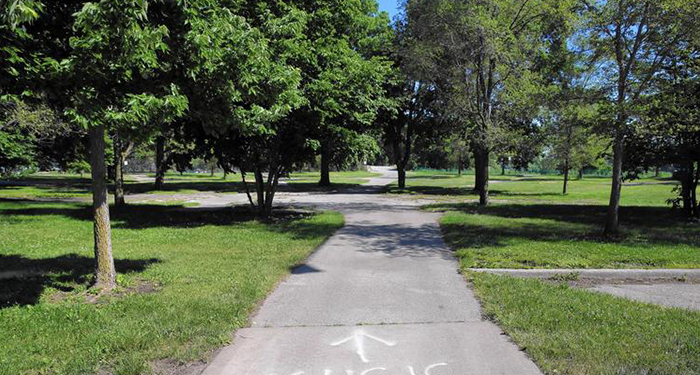
A music pavilion has been proposed for this section of Jackson Park. (Terrence Antonio James / Chicago Tribune)
Matt Wilson, GCI economic development planner, was quoted in an article on the use of public parks for private events such as music festivals. He cautions that using park spaces for private festivals makes them no longer accessible to the general public.
“Parks are gathering spaces, and when you add a physical element of an amphitheater and a stage, it’s an easy way to incorporate a tourist attraction,” said Matt Wilson, economic development planner at the Great Cities Institute at the University of Illinois at Chicago. Having the infrastructure to host concerts could give Chicago a competitive edge over other cities when it comes to drawing major events, he said.
On the other hand, the question becomes: Whose space is this, and who are these events for, he said. “Are they for Chicagoans? Probably sometimes. But you’re taking public space and an amenity for the people of Chicago and turning it into a tourism destination, turning public space into a space for others,” Wilson said.
He adds: “When you take a public park and fence it off and have people buy tickets to enter that space, it’s no longer public space.”
And sometimes those big events can do enough damage to green spaces that they’re closed for months at a time, something residents have complained about in the wake of such festivals as Riot Fest, particularly when the event was staged in Humboldt Park. In fact, the festival relocated last year after loud criticism.


